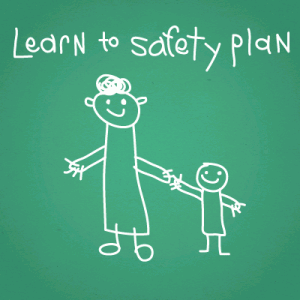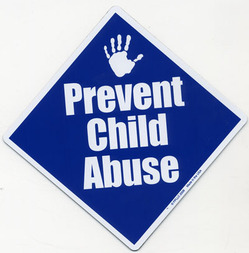Today’s world can be a scary place for parents. Below is a list of different ways that you can keep your child safe.
Create a family safety plan
 Creating a family safety plan is an excellent way to get started. Knowing what to expect with your child and setting clear boundaries for adults help you identify warning signs early and prevent abuse before it happened. Learn more about creating a family safety plan.
Creating a family safety plan is an excellent way to get started. Knowing what to expect with your child and setting clear boundaries for adults help you identify warning signs early and prevent abuse before it happened. Learn more about creating a family safety plan.
Talk with your child
Teaching our children about sex and sexuality and talking with them about personal space, boundaries, touching, and saying no helps protect them from sexual harm or abuse. Parents may feel awkward, uncomfortable, or even that it’s unnecessary, but we don’t help our children if we ignore the reality of their sexual development. Instead of planning for “the big talk,” make teaching your child about sexuality and relationships a part of everyday life. Learn more about talking with your child to reduce vulnerability to sexual abuse.
Learn about sexual development
All children, including those with disabilities, are sexual beings and have sexual feelings. Expect that your child will have sexual feelings and will engage in sexual behaviors, regardless of the type and extent of his disability. Seek input about your child’s sexual development from the professionals who know your child including your family doctor, social workers, and teachers. This way you can be prepared to be proactive in addressing sexuality and sexual behaviors in your child by calmly responding and redirecting behaviors as needed. Learn more about age-appropriate sexual behaviors.
Protect your child in program settings
As caregivers, we need to be informed about keeping our child safe, the increased risks of abuse for children with disabilities, and ways to minimize these risks. We also need to ensure that the people who help care for our children are informed. When everyone understands the boundaries and guidelines, we can work together effectively to keep children safe. Learn more about preventing abuse in program settings.
Watch others’ behaviors
Being knowledgeable about how to recognize early warning signs and situations that increase the risk of sexual abuse will help you  keep your child and other children safe. Use this knowledge to set clear standards for appropriate, respectful behavior for the people who care for and interact with your child. By setting clear expectations, you can recognize and respond to concerning behaviors. Learn more about behaviors to watch for in adults and youth.
keep your child and other children safe. Use this knowledge to set clear standards for appropriate, respectful behavior for the people who care for and interact with your child. By setting clear expectations, you can recognize and respond to concerning behaviors. Learn more about behaviors to watch for in adults and youth.